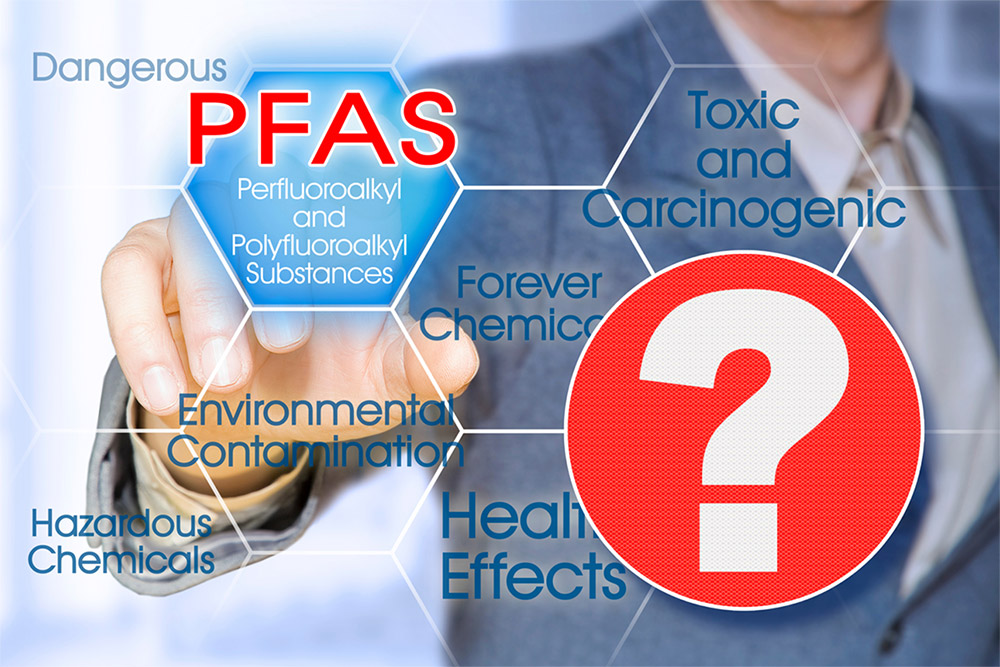What the Latest EPA PFAS Rule Means for Site Due Diligence
The new rule brings wide-ranging impacts for property owners and operators.
Q3 2024

So, what does this mean for those charged with corporate site selection and relocation? Here’s what to know about its wide-ranging impacts, including on due diligence considerations in real estate transactions.
What are PFAS?
PFAS are human-made chemicals that have been used in industry and consumer products for decades, showing up in everyday items like non-stick cookware, cosmetics, and water-repellent clothing, as well as in industrial products like firefighting foam.
Because PFAS are slow to degrade (some forms can take over 1,000 years), their prevalence in the environment is significant, including in our water, air, food, and soil. There is increasing scientific evidence that exposure to certain levels of PFAS may be harmful to humans and the environment and could lead to adverse reproductive effects, increased risks of cancer, and a weakened immune system.
The consequences of PFAS being listed as hazardous substances at the federal level are far reaching. The New PFAS Rule’s Impacts
The consequences of PFAS being listed as hazardous substances at the federal level are far reaching. When the new rule goes into effect 60 days after publication in the Federal Register, it will surely trigger state “mini Superfunds” to follow suit and include PFAS on their lists of hazardous substances. It will also cause other regulatory schemes like those under the Hazardous Material Transportation Act and the Resource Recovery and Conservation Act to regulate PFAS.
Practically, the new rule will affect “re-openers” under many, if not most, sites, potentially upsetting the balance in what was thought to be closure on a site. It will also impact the scope of due diligence in real estate and corporate transactions, forcing the parties to try to define if an issue exists and, if so, how to monetize it for a deal.
For example, when a company is seeking to acquire a new location, good due diligence must include an evaluation as part of the Phase 1 environmental site assessment of whether there are PFAS impacts at or associated with the location. If PFAS are present, the next step is to determine if and how they are regulated, whether there is existing technology to remediate the PFAS, and whether costs of the cleanup can Good due diligence must include an evaluation as part of the Phase 1 environmental site assessment of whether there are PFAS impacts at or associated with the location. be estimated. Informed decision-making about PFAS will be critical and must include a healthy dose of practicality, otherwise transactions will come to a halt.
This is yet another era in environmental regulation that has seen PFAS-related regulations on drinking water at both the federal and state level. Dozens of state attorneys general are pursuing litigation against PFAS manufacturers for allegedly contaminating water supplies and other natural resources. Staying up to date about PFAS and how they are being handled at the federal and state levels is crucial for companies as they move forward with deals.
Robin L. Main is a partner in the Litigation group, co-chair of the Environmental and Energy group, and serves on the Executive Committee at Hinckley Allen. She is a seasoned environmental and energy attorney with over 40 years of experience.
Project Announcements
DSV Global Transport and Logistics Plans Mesa, Arizona, Headquarters Operations
01/24/2026
Poland-Based JGB Brothers Plans Bamberg County, South Carolina, Production Operations
01/23/2026
Electric Research and Manufacturing Cooperative Plans Waddell, Arizona, Transformer Production Operations
01/23/2026
Viking Attachments Expands Morgan City, Louisiana, Manufacturing Operations
01/23/2026
France-Based Reju Plans Rochester, New York, Textile Regeneration Operations
01/23/2026
Heil Trailer International Expands Athens, Tennessee, Manufacturing Operations
01/23/2026
Most Read
-
The Workforce Bottleneck in America’s Manufacturing Revival
Q4 2025
-
Data Centers in 2025: When Power Became the Gatekeeper
Q4 2025
-
Speed Built In—The Real Differentiator for 2026 Site Selection Projects
Q1 2026
-
Preparing for the Next USMCA Shake-Up
Q4 2025
-
Tariff Shockwaves Hit the Industrial Sector
Q4 2025
-
Top States for Doing Business in 2024: A Continued Legacy of Excellence
Q3 2024
-
Investors Seek Shelter in Food-Focused Real Estate
Q3 2025